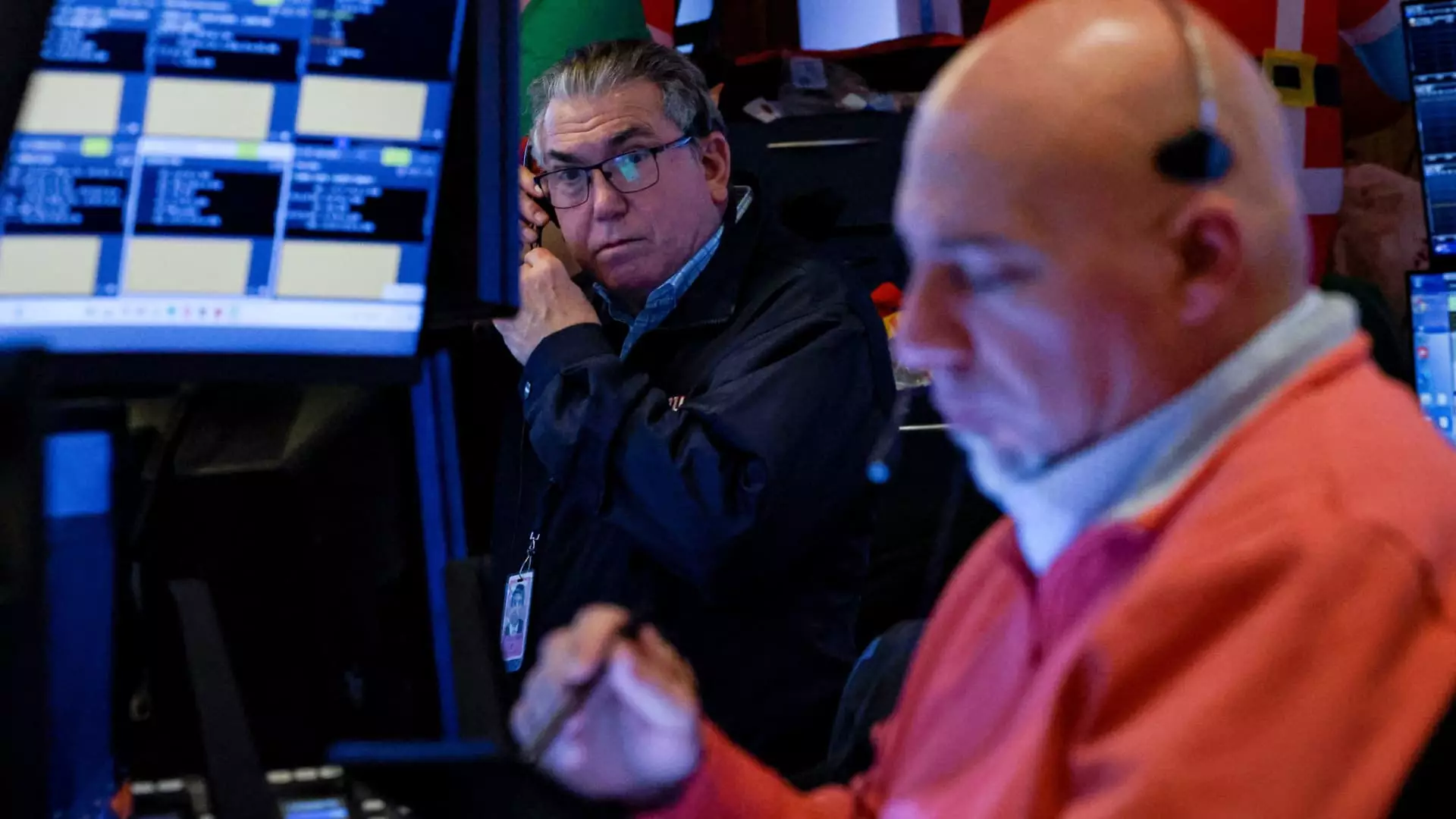European financial markets are bracing for a lackluster opening on Tuesday, with key indices poised for declines as central bank activities take the spotlight this week. Early predictions indicate that the U.K.’s FTSE 100 could see a dip of 18 points, settling at 8,240. Meanwhile, Germany’s DAX is forecasted to experience a decrease of 22 points to 20,291, France’s CAC is expected to fall 12 points to reach 7,342, and Italy’s FTSE MIB might slide down by 129 points to 34,618, according to data sourced from IG Markets.
Amidst global uncertainties, investors have their eyes trained on various central bank policy decisions, particularly those from the U.S. Federal Reserve, which is set to kick off its two-day policy meeting today. The Fed’s anticipated decision, to be revealed on December 18, is critical for shaping market expectations and sentiment. Current indicators suggest that traders are pricing in a staggering 95% likelihood of a quarter-point rate cut, as indicated by the CME Group’s Fed Watch tool. This potential move could signal a shift in monetary policy aimed at bolstering economic recovery.
The Implications of Central Bank Decisions
Chair Jerome Powell’s forthcoming press conference will be instrumental for investors seeking insights into the Fed’s future policy trajectory. As central banks around the world navigate the economic landscape, market participants will be keenly dissecting Powell’s statements for any indications regarding the sustained path of interest rates and broader economic recovery.
In contrast, the Bank of England will convene on Thursday amid speculation surrounding a possible final rate cut for the year. However, current market sentiment only reflects a slight chance for such an move, which highlights the diverging approaches among central banks as they address the post-pandemic economic environment.
In parallel to monetary policies, political dynamics are also shifting. German Chancellor Olaf Scholz faced a significant confidence vote in the Bundestag on Monday, which he intentionally lost, setting the stage for a potential snap election on February 23. This political maneuver follows the recent collapse of his ruling coalition, underscoring the fragility of governmental stability in Europe amid ongoing economic challenges.
As the European markets adjust to these potential political upheavals, Asian-Pacific markets showed a mixed performance earlier today, reflecting a wait-and-see attitude before European openings. Concurrently, U.S. stock futures witnessed slight declines on Monday evening, suggesting that global markets are bracing for shifts shaped by both fiscal and political developments.
As part of the ongoing economic assessment, essential data releases are set to take place today, including U.K. unemployment figures along with Germany’s Ifo business climate and economic sentiment indices. While no major earnings reports are on the calendar, these economic indicators will be closely monitored to gauge the health of the European economy as central banks deliberate their next steps.
As European markets navigate the challenges posed by central banks and political developments, investors face a complex landscape requiring careful analysis and strategic planning. The coming days will be crucial to shaping market trajectories as we head into the end of the year.

Leave a Reply